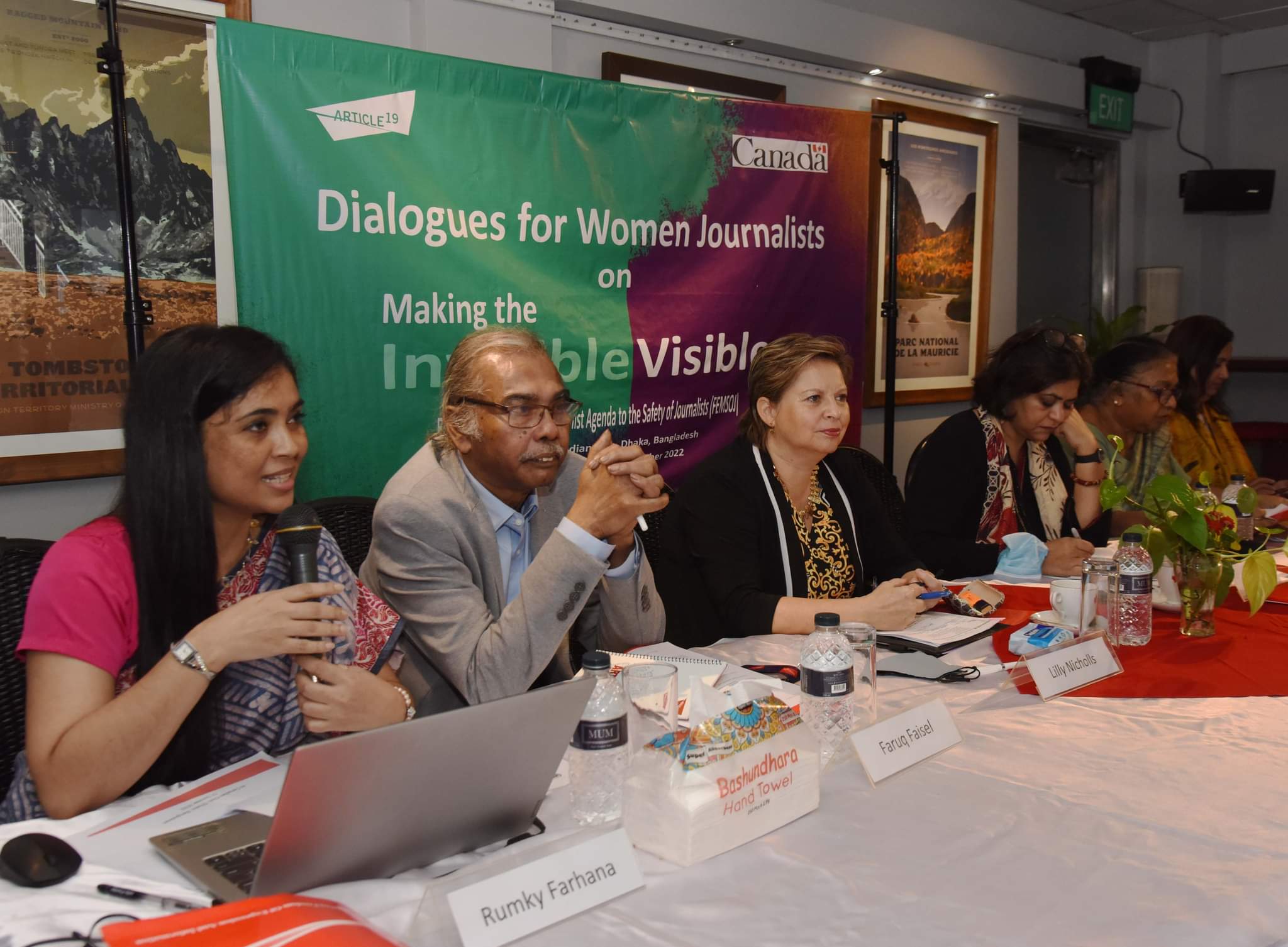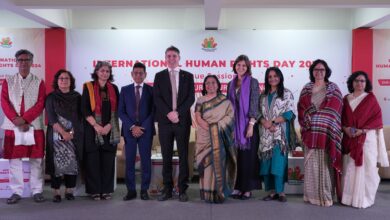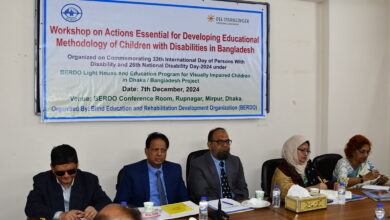ARTICLE 19 inaugurated series of dialogues for the safety of women journalists of Bangladesh

Speakers at a dialogue on safety of women journalists of Bangladesh urged to develop a National Action Plan to ensure safety and well-being of women journalists as per the United Nations resolution on Women, Peace and Security (UNSCR 1325).
The High Commissioner of Canada for Bangladesh Lilly Nicholls attended the event as the Chief Guest. Discussants also included Barrister Sara Hossain, Senior Advocate, Supreme Court of Bangladesh, Nasimun Ara Huq Minu, President, Bangladesh Nari Sangbadik Kendro and Angur Nahar Monty, Coordinator, Women Journalists Network Bangladesh. Faruq Faisel, Regional Director for ARTICLE 19 South Asia moderated the dialogue session. Rumky Farhana, Senior Program Officer of ARTICLE 19 presented the keynote paper pointing out the objectives and scope of these upcoming series of dialogues. Journalists, Civil Society Organizations, diplomats, academia, researchers and media actors attended the inaugurating session.
The speakers came up with their opinions in the inaugurating session for upcoming series of dialogues among women journalists of Bangladesh on “Making the invisible visible” under a Global Project ‘Equally Safe: Towards a feminist agenda to the safety of journalists (FEMSOJ)’ with the funding of Global Affairs Canada (GAC) in six countries in South America and South Asia. The inauguration programme organized by ARTICLE 19 South Asia, a UK-based human rights organization today (Wednesday, 19 October 2022) at the Canadian Club, Dhaka, Bangladesh.
The High Commissioner of Canada for Bangladesh Lilly Nicholls, said, “Media plays vital role to ensure democracy and transparency in a country. Media also plays a key role to hear from different sections of the people and represent the voice of the unheard. Media freedom is deteriorating all around the world including Bangladesh. In Bangladesh, Digital Security Act put additional threat for journalists.”
Barrister Sara Hossain said, “In Bangladesh, criticism, questions and dissent voice is suppressed by criminalization of expression. Restriction on freedom of expression should only be imposed by law and restriction should be reasonable and proportionate. Every media house should have gender policy, sexual harassment policy and code of conduct. New draft Data Protection Act, Digital and Social Media and OTP Platforms Regulations should be reviewed under freedom of expression and gender lens and revised accordingly.
In his speech, Faruq Faisel said, ‘‘In Bangladesh, safety of journalists, in particular women journalists, is under threat in many aspects. Although, Pakistan is lagging behind from Bangladesh in economic, social, women empowerment and human rights indexes, but the country has law on ‘Protection of Journalists and Media Professionals Act, 2021’ at least in two provinces. It is shame for Bangladesh that we don’t have any law to protect journalists’’.
Participants at the dialogue said, in Bangladesh, the safety of journalists is under threat with multiple accounts of violence including assassinations, enforced disappearances, and legal harassments. Journalists become more vulnerable in the time of elections and pandemic like COVID 19. In every situation, women journalists are more vulnerable at the workplaces and outside of work places than their men counterpart as violations automatically impact the less empowered segments more severely.





